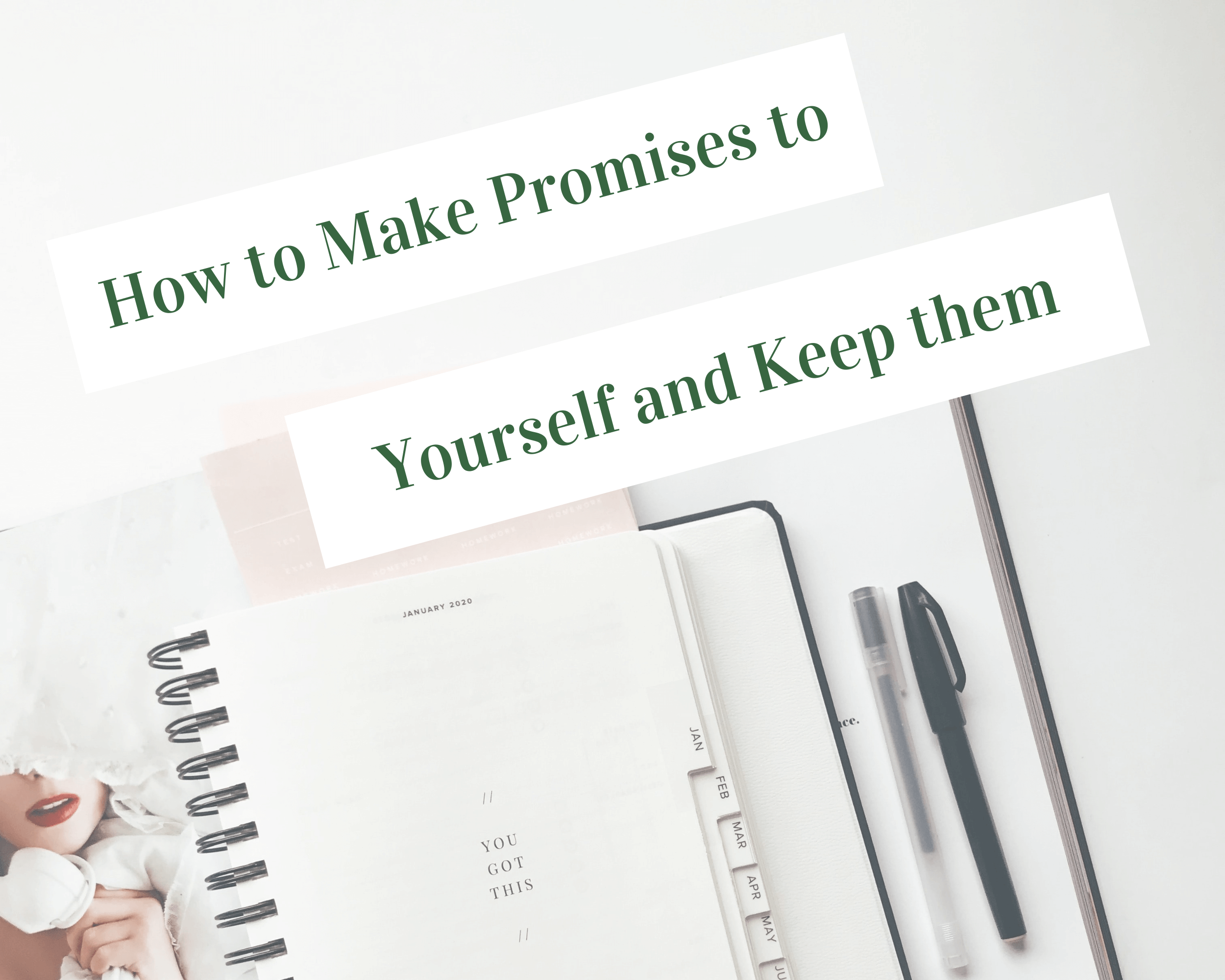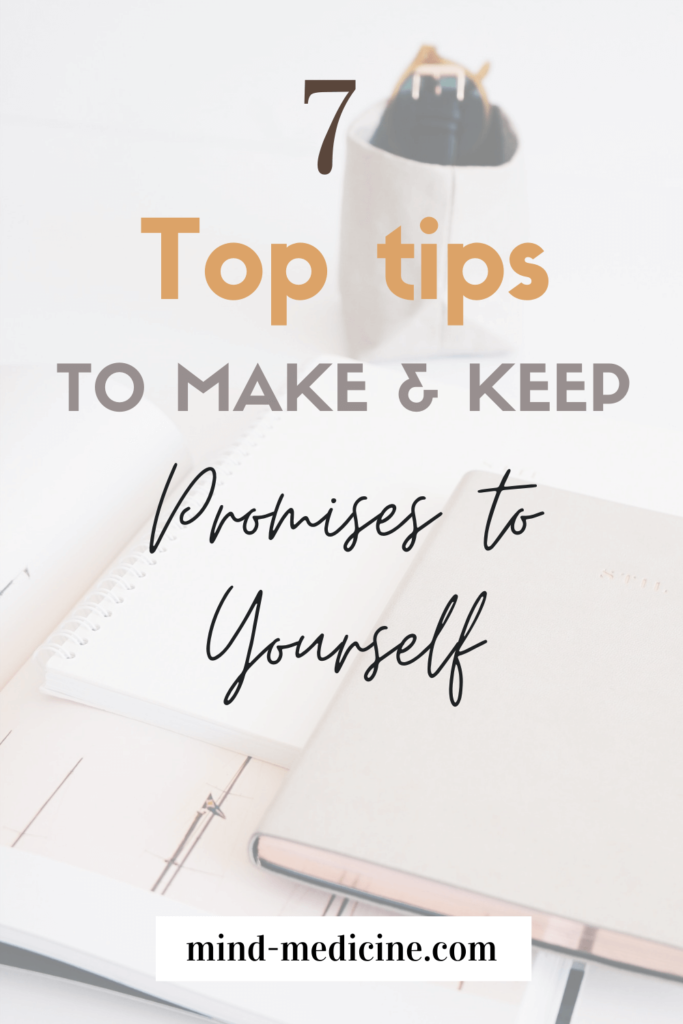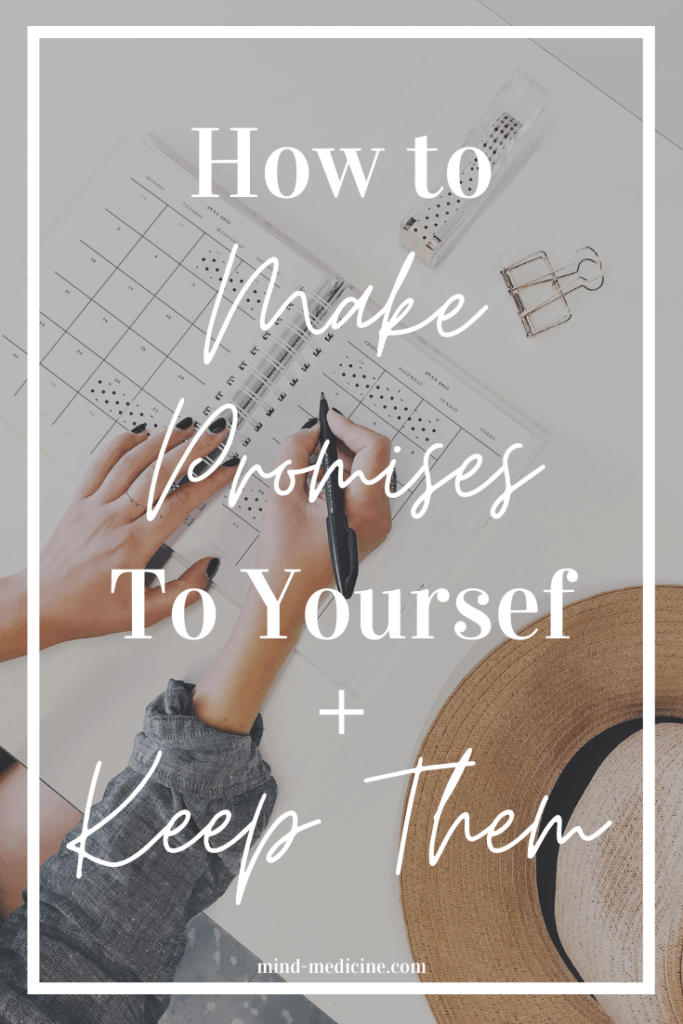Diving into why it’s important to keep promises to yourself, not just to others
Keeping promises to others is the easy part, but keeping promises to yourself seems to be far more difficult. Do you find yourself making tiny internal vows to yourself but not following through?
Disclaimer: This post contains affiliate links that I earn a commission from at no cost to you
Recently, I’ve noticed myself doing this. Swearing that tomorrow will be the day I eat healthier, drink more water, go for that run, and even trying to stop putting myself down. Tomorrow comes and goes and still, no change.
The more I notice how I break these promises to myself, the less trust and belief I have in myself. The more I criticise myself about how I’m lazy and how I’m not worth anyone else’s promises either. Now, I’ve realised how damaging these thoughts and small failures are on my mindset and my confidence.
Do you also break these small promises to yourself?
Why is it easier to break promises to ourselves?
When you make a promise to a friend, a loved one, a family member or a colleague, you’re likely to follow through. Promises you make to others builds trust, value, and a foundation for a solid relationship. Breaking a promise to someone else can jeopardise the relationship completely and risk it breaking down.
Disappointing someone else can be of much higher priority than disappointing yourself, particularly because they are holding you accountable. They’re likely to hold you to your word and you are obliged to show up. However, making vows to yourself leaves only you to hold yourself accountable. Making it easier to let it go and seem much less important to you.
In addition, it is easier to let promises go when your comfort zone and habitual patterns rule your life. Our brains are wired to seek pleasure and avoid pain. Going against what we know and are comfortable with means there is a risk of pain. Creating mental resistance and making it difficult to change consciously.
Limiting beliefs, which are self-fulfilling prophecies, and underlying negative emotions have the same effect. A belief like, “I am lazy” can be attached to your identity and create further resistance to the promises you make to yourself. These stories and thoughts can also cause a lack of belief in yourself and thinking you aren’t worth the time and effort to keep the promises.
Ultimately, breaking promises comes down to accountability, mindset, beliefs and how you view yourself.
Why is it important to keep the promises you make to yourself?
Have you ever been stood up on a date? Being sat there by yourself provides a bit too much room to start questioning why. Often, thoughts turn to, “what’s wrong with me?” and “why I am not important enough for them?”. Unfortunately, these negative thoughts and hurt can also arrive when you break promises to yourself and don’t show up for yourself.
Lowering your self-esteem and self-confidence as you break your own trust boundaries. Your sense of self-worth and belief in yourself so low because you’re analysing all the things wrong with you when you can’t keep a small vow to yourself.
In addition, breaking promises can encourage more self-criticism and negative self-talk. Putting yourself down and telling yourself more negative stories about how unreliable you might be, how worthless, or small you might be.
These thoughts also position you as a victim. A victim mindset blames other people and circumstances for your situation and life. Breaking personal commitments can leave you in this reactive mindset. However, keeping personal promises transforms you into a proactive creator in your life, knowing that you are responsible for your actions and thoughts.
Self-confidence, esteem, and accountability are important to have in your life in order to be your best self and create the life you want. Making keeping your own promises, extremely important.
How to make a promise to yourself you can keep
Now to the nitty gritty, actionable steps to start keeping promises to yourself.
1. Make it visible
Another part that can make keeping promises to others easy is the fact that it is probably written down somewhere. For example, a meeting that you’ve organised will be written in your diary so you won’t forget. But, promises to yourself are often mental notes. Making them much easier to be forgotten and seen as unimportant.
Therefore, writing the promise down and making it visible means you are less likely to forget. Some ways to do this can be:
- writing it on a post-it note and sticking them to your wall so that you see them every day
- setting daily reminders on your phone to alert you and remind you to keep your promise
- creating a bold phone wallpaper so that you see it every time you look at your phone
Make your promise visible, obvious, and in your face so that it can’t be ignored.
2. Be consistent
Consistency is key to keeping a promise to yourself because as soon as you start letting it slip, it becomes easier to let it go. Being consistent can help build the promise as a new habit. Enforcing it as part of your life and who you are.
3. Be realistic
Just like when you are trying to remove your limiting beliefs, replacing them with beliefs that are disconnected from you or seem too far away is ineffective. Promises that seem unreachable or unattainable can result in you not following through. Residual negative beliefs about yourself can get in the way and keep you playing small.
Therefore, to combat this you can make realistic and relevant personal promises. Setting small steps to becoming your true self and implementing achievable mini-goals will mean you can be much more successful in keeping personal vows.
4. Have one key promise
Trying to do too many things at once can be extremely overwhelming. Creating the mental resistance mentioned earlier where you risk the potential for pain.
Therefore, having one key promise can combat this resistance and help keep the promise. Do one thing at a time and have one main focus to orient the change you want to make in your life. Rather than overhauling your whole life and failing, take one thing at a time and be more successful.
5. Focus on the positive
The promises we make to ourselves are usually done to change a behaviour we don’t like. Resulting in a vow being solely negative like, “I will stop taking out my emotions on others”. However, this focuses on the behaviour that you don’t want to do and doesn’t guide you on how to change it.
Instead, use positive and encouraging language like, “I choose to embrace love and treat others with love”. Providing you with a goal and motivation for your personal promise. Attracting more of what you want and less of what you don’t want.
6. You are important
One of the main reasons you can break a promise to yourselves is because you do not value yourself or see yourself as of much importance. This is totally wrong!
You are the most important person in your world, you are the one living your life no one else. Therefore, you need to change that view of yourself to know how important a promise is to uphold for yourself. Commit and know your worth so that you can make the change you desire.
7. Connect to the promise with real emotion
Keeping yourself motivated to keep the promise and connected to the promise can be challenging. However, emotions can be drivers and reminders of the commitment you made to yourself. Therefore, reinforce the promise with a connection to emotion and feeling.
Making a promise such as “I choose to embrace and have love”, emphasise the words and feel the love at that moment. Let it fill your body and motivate what you do and keep that promise to yourself.
Examples of promises to make and keep to yourself
Using the tips above, here are some examples and types of promises to keep to yourself.
I promise to myself that I will be kind to myself, speaking lovingly and encouragingly
Replace the negative self talk with positive self-talk and build yourself up. Remembering to hold yourself of high importance and value yourself. Keeping this promise might be hard so start by having self-awareness for the negative thoughts, stop them in their tracks and replace them with your promise.
I choose to accept my flaws as well as my strengths, embracing every part of myself with love
Again, building up your self-confidence and embrace who you are. We aren’t perfect and I encourage you to look on yourself with love and acceptance for flaws and strengths, embracing a growth mindset.
I promise to learn to live in and fully experience the present moment
Mindfulness is an excellent tool to encourage more happiness, peace and love in your life.
I choose to see the fun and fulfilment I can obtain in every experience presented to me
This promise encourages more mindfulness and a more positive and playful outlook on life. Ask yourself what kind of mindset and perspective you want to bring to every experience you encounter.
I promise to release past pains and take leaps of faith
Past pains can encourage negative self-talk and reinforce limiting beliefs. This can be detrimental to your life, mindset, and actions you take. This promise facilitates a stronger as well as a more trusting mindset in your life
Commit to the promises you make to yourself
Now that you have an idea of the kinds of promising you can make and how to keep them, you have to put this into action. Start by writing your first promise. Choosing the language carefully, ensuring it is realistic, personal and specific, and the real feeling behind it. Implement the promise into your life, being consistent and a proactive participant in your life. Hold yourself accountable for the actions you take and understand how worthy you are to keep the promise to.


